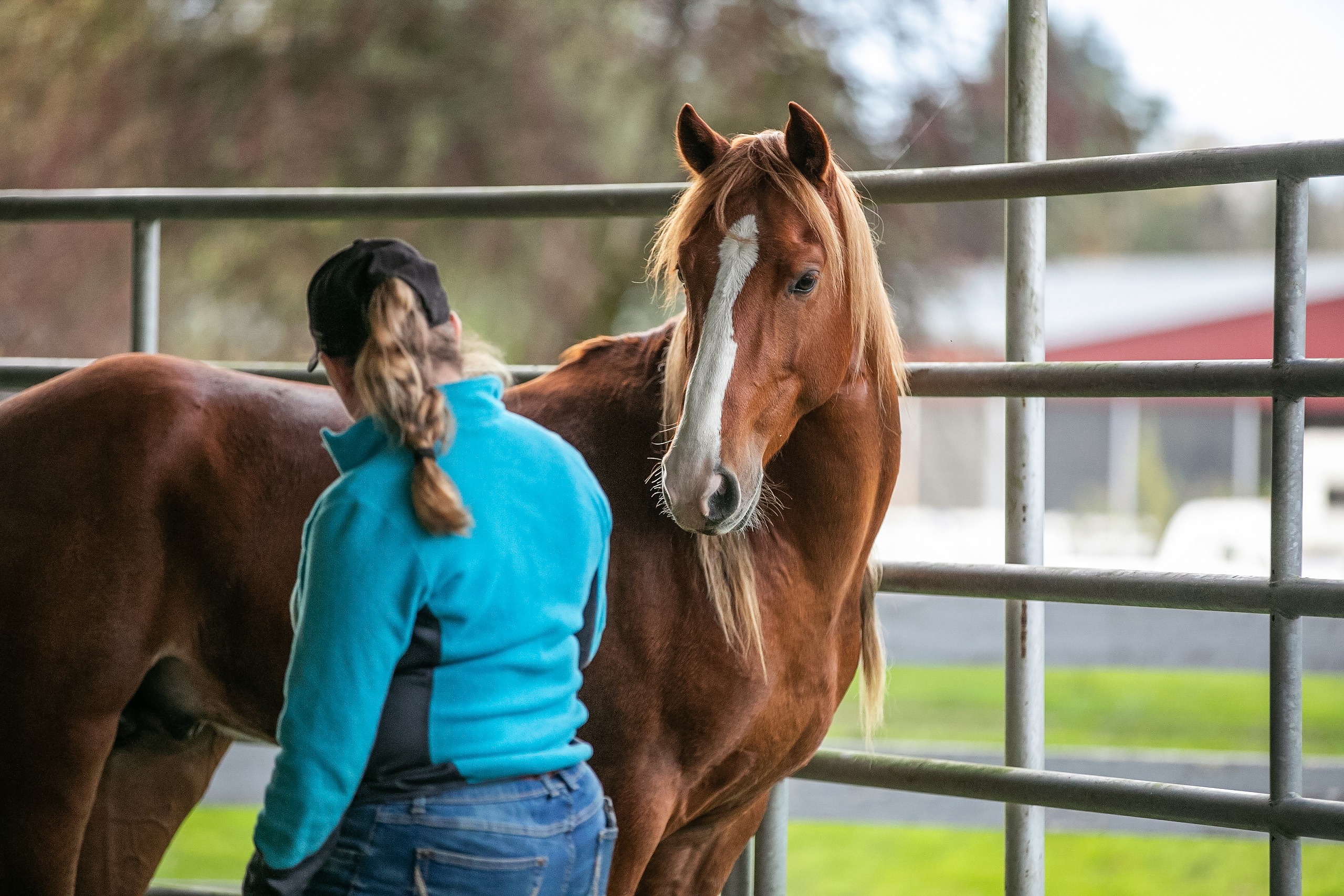We’re just getting to know Cooper and working to assess his personality as we prepare him for halter training. Upon arrival at SAFE, he showed signs of soreness, and unfortunately, he seems to have a soundness issue. Because he isn’t halter-trained yet, we haven’t been able to conduct a full veterinary exam. However, we’ve consulted with veterinarians and agreed that our first step is to slowly introduce haltering, allowing us to offer him better care as he begins to accept handling. Some of his soreness might improve as he gains strength, and we may also consider corrective shoeing if needed. For now, he’s receiving Equioxx to help alleviate discomfort, though it doesn’t completely resolve the issue.
Managing an untouchable stallion presents unique challenges. Cooper was visibly agitated in his new environment, calling and pacing whenever he saw or heard other horses. This behavior has lessened, but he still moves frequently, especially when other horses are nearby. Some of his soreness could be due to this increased movement, on top of what we suspect may be a pre-existing issue that may have been aggravated during his “romp” around his neighborhood before intake.
Currently, we’re observing him daily, taking note of his movement patterns, comfort levels, and how he appears after any activity. Each day, we assess his baseline soundness and recovery time, all while working patiently to build his comfort with haltering. Although he’s shown no signs of aggression, Cooper’s natural instinct is to retreat from people, which is not unusual for horses unfamiliar with handling. We’re careful to respect his space and avoid putting him in situations where he feels cornered, aiming to build his trust gradually. With each step, we increase our approach only to the extent he can manage, helping him relax and find calm in our presence.
Over the past three weeks, Cooper’s comfort level has grown significantly. Initially, he was only comfortable with us at a distance across the 60-foot round pen, but now we can approach within inches. He’s even reached out and touched my hand a few times, though he still startles afterward. He’s learning that contact with people doesn’t harm him. We suspect he may have previously learned that he could avoid people, especially on his right side—the side where someone may have once tried to halter him. Despite this resistance, we’re committed to starting from where he is and building trust step by step.
It’s clear that Cooper’s journey with us won’t be quick or easy. His situation underscores the importance of halter training and gelding as fundamental aspects of responsible horse ownership. Stallions and untouchable horses pose risks to both people and themselves when they are left without training. But if you’re reading this, you probably already understand why this work is so important. Thank you for supporting Cooper’s journey to a better life


